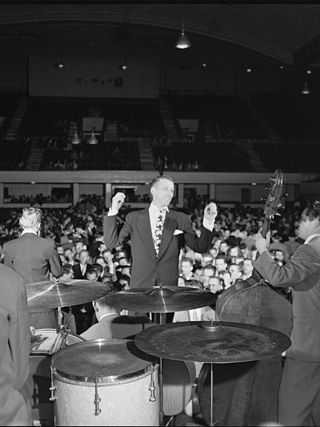
Music is the arrangement of sound to create some combination of form, harmony, melody, rhythm, or otherwise expressive content. However, definitions of music vary depending on culture, though it is an aspect of all human societies and a cultural universal. While scholars agree that music is defined by a few specific elements, there is no consensus on their precise definitions. The creation of music is commonly divided into musical composition, musical improvisation, and musical performance, though the topic itself extends into academic disciplines, criticism, philosophy, psychology, and therapeutic contexts. Music may be performed using a vast range of instruments, including the human voice to sing, and thus is often credited for its extreme versatility and opportunity for creativity.

Progressive music is music that attempts to expand existing stylistic boundaries associated with specific genres of music. The word comes from the basic concept of "progress", which refers to advancements through accumulation, and is often deployed in the context of distinct genres, with progressive rock being the most notable example. Music that is deemed "progressive" usually synthesizes influences from various cultural domains, such as European art music, Celtic folk, West Indian, or African. It is rooted in the idea of a cultural alternative, and may also be associated with auteur-stars and concept albums, considered traditional structures of the music industry.

Musical composition can refer to an original piece or work of music, either vocal or instrumental, the structure of a musical piece or to the process of creating or writing a new piece of music. People who create new compositions are called composers. Composers of primarily songs are usually called songwriters; with songs, the person who writes lyrics for a song is the lyricist. In many cultures, including Western classical music, the act of composing typically includes the creation of music notation, such as a sheet music "score", which is then performed by the composer or by other musicians. In popular music and traditional music, songwriting may involve the creation of a basic outline of the song, called the lead sheet, which sets out the melody, lyrics and chord progression. In classical music, orchestration is typically done by the composer, but in musical theatre and in pop music, songwriters may hire an arranger to do the orchestration. In some cases, a pop or traditional songwriter may not use written notation at all and instead compose the song in their mind and then play, sing or record it from memory. In jazz and popular music, notable sound recordings by influential performers are given the weight that written or printed scores play in classical music.
Progressive rock is a broad genre of rock music that primarily developed in the United Kingdom through the mid- to late 1960s, peaking in the early 1970s. Initially termed "progressive pop", the style was an emergence of psychedelic bands who abandoned standard pop traditions in favour of instrumentation and compositional techniques more frequently associated with jazz, folk, or classical music. Additional elements contributed to its "progressive" label: lyrics were more poetic, technology was harnessed for new sounds, music approached the condition of "art", and the studio, rather than the stage, became the focus of musical activity, which often involved creating music for listening rather than dancing.
Sheet music is a handwritten or printed form of musical notation that uses musical symbols to indicate the pitches, rhythms, or chords of a song or instrumental musical piece. Like its analogs – printed books or pamphlets in English, Arabic, or other languages – the medium of sheet music typically is paper. However, access to musical notation since the 1980s has included the presentation of musical notation on computer screens and the development of scorewriter computer programs that can notate a song or piece electronically, and, in some cases, "play back" the notated music using a synthesizer or virtual instruments.
The roots of traditional music in Turkey span across centuries to a time when the Seljuk Turks migrated to Anatolia and Persia in the 11th century and contains elements of both Turkic and pre-Turkic influences. Much of its modern popular music can trace its roots to the emergence in the early 1930s drive for Westernization.

A composer is a person who writes music. The term is especially used to indicate composers of Western classical music, or those who are composers by occupation. Many composers are, or were, also skilled performers of music.

Art music is music considered to be of high phonoaesthetic value. It typically implies advanced structural and theoretical considerations or a written musical tradition. In this context, the terms "serious" or "cultivated" are frequently used to present a contrast with ordinary, everyday music. Many cultures have art music traditions; in the Western world, the term typically refers to Western classical music.
Krautrock is a broad genre of experimental rock that developed in West Germany in the late 1960s and early 1970s. It originated among artists who blended elements of psychedelic rock, avant-garde composition, and electronic music, among other eclectic sources. Common elements included hypnotic rhythms, extended improvisation, musique concrète techniques, and early synthesizers, while the music generally moved away from the rhythm & blues roots and song structure found in traditional Anglo-American rock music. Prominent groups associated with the krautrock label included Neu!, Can, Faust, Tangerine Dream, Kraftwerk, Cluster, Ash Ra Tempel, Popol Vuh, Amon Düül II and Harmonia.
In music, form refers to the structure of a musical composition or performance. In his book, Worlds of Music, Jeff Todd Titon suggests that a number of organizational elements may determine the formal structure of a piece of music, such as "the arrangement of musical units of rhythm, melody, and/or harmony that show repetition or variation, the arrangement of the instruments, or the way a symphonic piece is orchestrated", among other factors. It is, "the ways in which a composition is shaped to create a meaningful musical experience for the listener."
"Form refers to the largest shape of the composition. Form in music is the result of the interaction of the four structural elements described above [sound, harmony, melody, rhythm]."

The music of Armenia has its origins in the Armenian highlands, dating back to the 3rd millennium BCE, and is a long-standing musical tradition that encompasses diverse secular and religious, or sacred, music. Folk music was notably collected and transcribed by Komitas Vardapet, a prominent composer and musicologist, in the late nineteenth and early twentieth centuries, who is also considered the founder of the modern Armenian national school of music. Armenian music has been presented internationally by numerous artists, such as composers Aram Khachaturian, Alexander Arutiunian, Arno Babajanian, Haig Gudenian, and Karen Kavaleryan as well as by traditional performers such as duduk player Djivan Gasparyan.

In music, modernism is an aesthetic stance underlying the period of change and development in musical language that occurred around the turn of the 20th century, a period of diverse reactions in challenging and reinterpreting older categories of music, innovations that led to new ways of organizing and approaching harmonic, melodic, sonic, and rhythmic aspects of music, and changes in aesthetic worldviews in close relation to the larger identifiable period of modernism in the arts of the time. The operative word most associated with it is "innovation". Its leading feature is a "linguistic plurality", which is to say that no one music genre ever assumed a dominant position.
Inherent within musical modernism is the conviction that music is not a static phenomenon defined by timeless truths and classical principles, but rather something which is intrinsically historical and developmental. While belief in musical progress or in the principle of innovation is not new or unique to modernism, such values are particularly important within modernist aesthetic stances.
Parody music, or musical parody, involves changing or copying existing musical ideas, and/or lyrics, or copying the particular style of a composer or performer, or even a general style of music.

Classical music generally refers to the art music of the Western world, considered to be distinct from Western folk music or popular music traditions. It is sometimes distinguished as Western classical music, as the term "classical music" can also be applied to non-Western art musics. Classical music is often characterized by formality and complexity in its musical form and harmonic organization, particularly with the use of polyphony. Since at least the ninth century it has been primarily a written tradition, spawning a sophisticated notational system, as well as accompanying literature in analytical, critical, historiographical, musicological and philosophical practices. A foundational component of Western culture, classical music is frequently seen from the perspective of individual or groups of composers, whose compositions, personalities and beliefs have fundamentally shaped its history.

Since Biblical times, music has held an important role in many Jews' lives. Jewish music has been influenced by surrounding Gentile traditions and Jewish sources preserved over time. Jewish musical contributions on the other hand tend to reflect the cultures of the countries in which Jews live, the most notable examples being classical and popular music in the United States and Europe. However, other music is unique to particular Jewish communities, such as klezmer of Eastern Europe.

Comedy music or musical comedy is a genre of music that is comical, comedic or humorous in nature. Its history can be traced back to the first century in ancient Greece and Rome, moving forward in time to the Medieval Period, Classical and Romantic eras, and the 20th century. Various forms of comedic musical theatre, including "musical play", "musical comedy", "operetta" and "light opera", evolved from the comic operas first developed in late 17th-century Italy. Popular music artists in the 20th century interested in comedy include Allan Sherman, Frank Zappa, Tiny Tim, Barenaked Ladies, Randy Newman, and "Weird Al" Yankovic. Artists in the 21st century include Tenacious D, Flight of the Conchords, The Lonely Island, Ninja Sex Party and The Axis of Awesome.

A part in music refers to a component of a musical composition. Because there are multiple ways to separate these components, there are several contradictory senses in which the word "part" is used:
Musical quotation is the practice of directly quoting another work in a new composition. The quotation may be from the same composer's work (self-referential), or from a different composer's work (appropriation).










